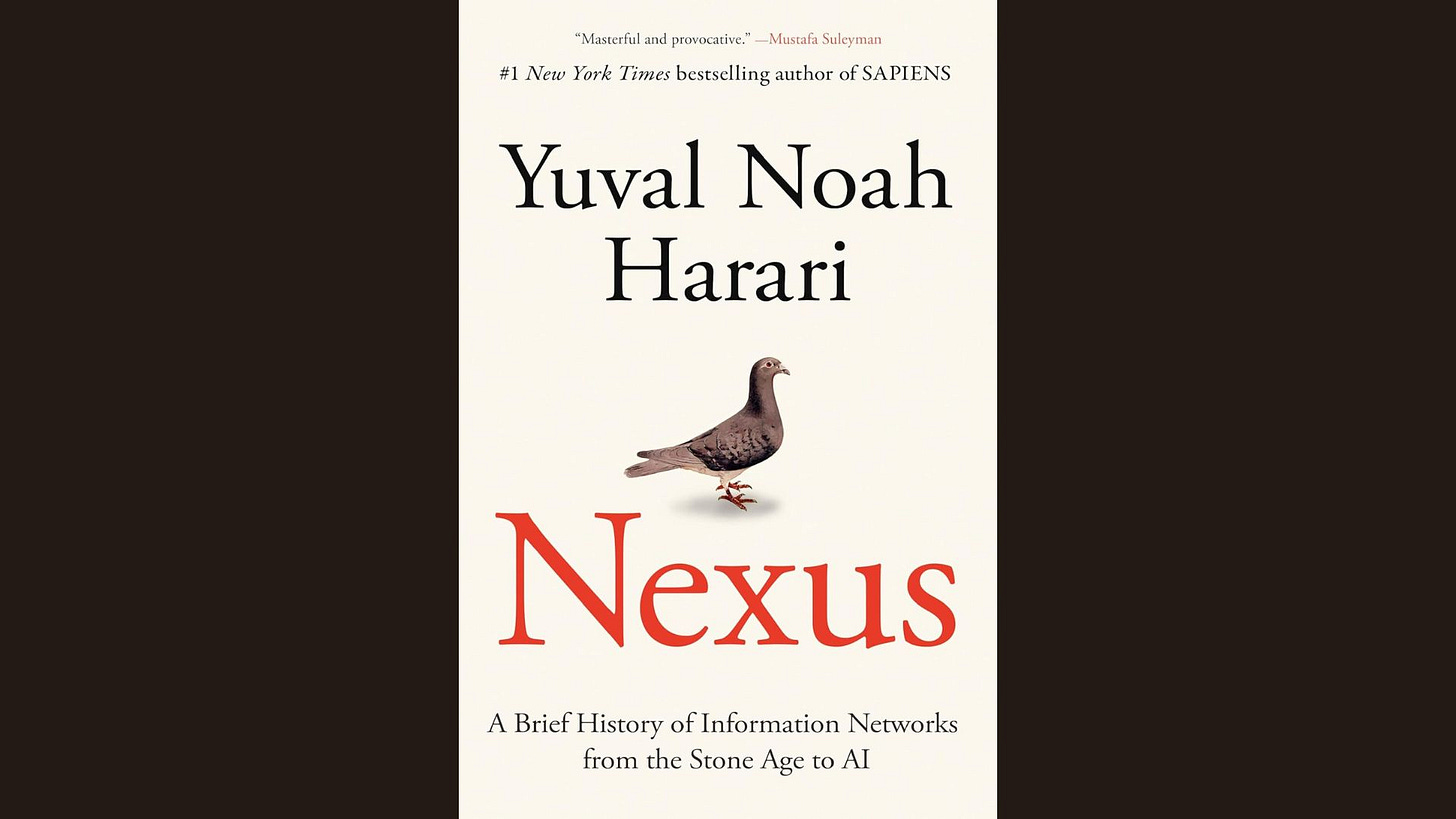Book Byte #338 "Nexus" by Yuval Noah Harari
A Brief History of Information Networks from the Stone Age to AI
📣 Curious Quotes from the Author
“The tendency to create powerful things with unintended consequences started not with the invention of the steam engine or AI but with the invention of religion. Prophets and theologians have summoned powerful spirits that were supposed to bring love and joy but occasionally ended up flooding the world with blood.”
“In order to cooperate, Sapiens no longer had to know each other personally; they just had to know the same story.”
“History isn’t the study of the past; it is the study of change. History teaches us what remains the same, what changes, and how things change.”
“Knives and bombs do not themselves decide whom to kill. They are dumb tools, lacking the intelligence necessary to process information and make independent decisions. In contrast, AI can process information by itself, and thereby replace humans in decision making. AI isn’t a tool—it’s an agent.”
“Why are we so good at accumulating more information and power, but far less successful at acquiring wisdom?”
“The increasing unfathomability of our information network is one of the reasons for the recent wave of populist parties and charismatic leaders. When people can no longer make sense of the world, and when they feel overwhelmed by immense amounts of information they cannot digest, they become easy prey for conspiracy theories, and they turn for salvation to something they do understand—a human.”
“What the example of astrology illustrates is that errors, lies, fantasies, and fictions are information, too. Contrary to what the naive view of information says, information has no essential link to truth, and its role in history isn’t to represent a preexisting reality. Rather, what information does is to create new realities by tying together disparate things—whether couples or empires. Its defining feature is connection rather than representation, and information is whatever connects different points into a network.”
“Our tendency to summon powers we cannot control stems not from individual psychology but from the unique way our species cooperates in large numbers. The main argument of this book is that humankind gains enormous power by building large networks of cooperation, but the way these networks are built predisposes us to use that power unwisely. Our problem, then, is a network problem.”
“Contrary to what the naive view believes, Homo sapiens didn’t conquer the world because we are talented at turning information into an accurate map of reality. Rather, the secret of our success is that we are talented at using information to connect lots of individuals. Unfortunately, this ability often goes hand in hand with believing in lies, errors, and fantasies.”
📚 Cognition of the Book’s Big Idea
Over the past 100,000 years, humans have amassed a great deal of power. However, we are currently experiencing an existential crisis in spite of all of our discoveries, innovations, and victories. The ecological catastrophe of the globe is imminent. There is a lot of misinformation. Furthermore, we are speeding into the era of artificial intelligence (AI), a new information network that could wipe us out. Why are we so self-destructive in spite of everything we have achieved?
Nexus examines how the dissemination of knowledge has influenced both our planet and ourselves by examining the lengthy history of humanity. Yuval Noah Harari challenges us to think about the intricate relationships between knowledge and truth, bureaucracy and mythology, wisdom and power, and the Stone Age, the canonization of the Bible, early modern witch hunts, Stalinism, Nazism, and the current rise of populism. He investigates the ways in which various political structures and societies have used knowledge to further their objectives—both positively and negatively—over time. He also discusses the pressing decisions we must make as non-human intelligence endangers our existence.
By examining the optimistic compromise between these extremes, Nexus rediscovers our common humanity.
Until Tomorrow,
Jason (Founder Club255)


Nice summary of a completely amazing book. So much relevance and wisdom for so many current debates.